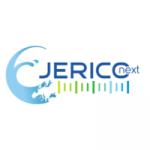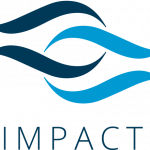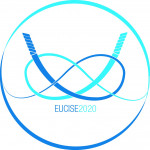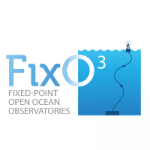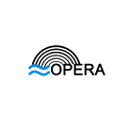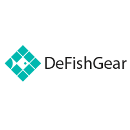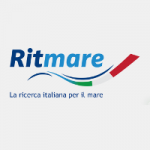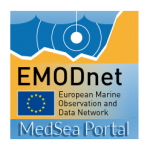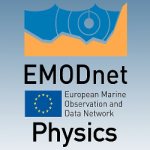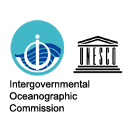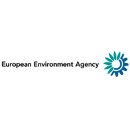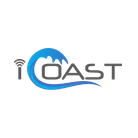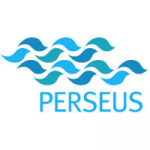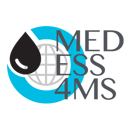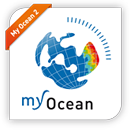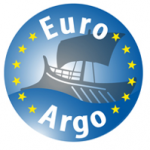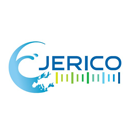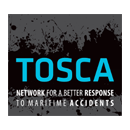Jerico-Next (2015-2018)
The JERICO-NEXT (Joint European Research Infrastructure network for Coastal Observatory – Novel European expertise for coastal Observatories) initiative was developed under the Horizon 2020 (H2020) program INFRAIA.
JERICO-S3 and JERICO Design Study (DS) projects (2020– 2023) as part of the JERICO Research Infrastructure (RI) initiative. JERICO-RI, which is a long-term integrated framework providing high-quality marine data, expertise, and multi-platform infrastructures for Europe’s coastal seas, might have a significant impact in terms of integration of HFR among key coastal observing technologies.
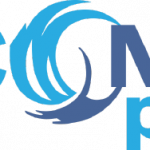
SICOMAR plus (2018–2021)
The SICOMAR plus cross-border project was supported by the Interreg Italy–France maritime program. It addressed the common challenge of navigation safety and quality of the transboundary marine environment. The project’s overall objective was to reduce the risks associated with navigation accidents and their consequences for human life, goods, and the environment.
IMPACT (2017–2020)
The IMPACT project was supported by the Interreg Italy–France maritime program. Interreg is a European territorial cooperation program designed to promote cooperation between member states on shared challenges and opportunities

SAMOA (2014-2019)
SAMOA project aims to provide personalized oceanographic and meteorological information tailored to the needs of the Spanish Harbour Authorities in order to improve and support the port activities. The project is led by Puertos del Estado and is participated by 18 Spanish Harbour Authorities.
EU CISE 2020 (2014-2017)
EUropean test bed for the maritime Common Information Sharing Environment in the 2020 perspective. The general aims of this project include the improvement of the harmonization of the cross-sectorial maritime situation; the assurance for the Member States / Nations to directly control the management of shared information through CISE cross-sector node/nodes; the optimization of available information avoiding, at the same time, the waste of resources due to duplication of existing systems in use and the capability to provide cooperating countries with an open platform to share data, information and services.
FixO3 (2013-2017)
The Fixed point Open Ocean Observatory network (FixO3) seeks to integrate European open ocean fixed point observatories and to improve access to these key installations for the broader community. Coordinated by the UK National Oceanography Centre, FixO 3 will build on the significant advances achieved through the FP7 programmes EuroSITES, ESONET and CARBOOCEAN. The Network includes 29 partners drawn from academia, research institutions and small and medium enterprises (SME). In addition 12 international experts from a wide range of disciplines comprise an Advisory Board
Opera (2014-2016)
The OPErational RAdars for research in marine sciences project (OPERA), funded by the Spanish Ministry of Economy and Competitiveness aims to perform the necessary technical developments in order to transform the set of already active HF radar systems along the Iberian coast in a measuring network fully integrated in the Puertos del Estado system.
Sampa 2 (2014-2016)
SAMPA 2 project, in the continuity of SAMPA, seeks to improve the knowledge of the Physical Marine Environment in the Strait of Gibraltar and the Algeciras Bay, which are one of the busiest shipping areas in the world, iin order improve decision-making in terms of safety and sustainability of the harbour activity. An operational oceanography system of the Algeciras Bay in the Strait of Gibraltar was implemented, including numerical forecast (3 days horizon) and the maintenance of in-situ data sensors in the area. The project is led by the Autoridad Portuaria de la Bahia de Algeciras APBA (Algeciras Bay Port Authority) and Puertos del Estado.
DeFishGear (2013-2016)
Derelict Fishing Gear Management System in the Adriatic Region Project addresses the problem of polluting the sea with marine litter and the economic impact on coastal communities. It aims at the monitoring and reduction of the quantity of microplastics in the marine environment and their effects on marine organisms. It will set up a system for collection and recycling of derelict fishing gear, including the so called ghost nets, and collection of floating litter and litter from the sea bottom, caught in the nets while fishing.
Ritmare (2012-2016)
Ritmare is the leading Italian marine research project for the period 2012-2016. The project is co-funded by public and private resources. It is coordinated by the National Research Council and involves an integrated effort of most of the scientific community working on marine and maritime issues, as well as some major industrial groups.The project has been structured around the following three objectives: to support integrated policies for the safeguard of the environment ; to enable sustainable use of resources and to implement a strategy of prevention and mitigation of natural impacts.
EMODnet Mediterranean
The EMODNET MedSea main objectives are to examine the current data collection, observation and data assembly programs in the Mediterranean sea basin, analyze how they can be optimised, and deliver the findings to stakeholders through an internet portal. Seven challenges were selected to make the bridge with end-user applications: Marine Protected areas, Oil Platforms leak, Climate and Coastal protection, Fisheries management, Marine Environment and River inputs.
EMODnet Physics
The EMODNET Physics provides one stop access point to near real time and historical data on physical conditions of seas and oceans. EMODnet Physics is built in cooperation and coordination with EuroGOOS and ROOSs, Copernicus Marine Environment Monitoring Service (CMEMS) and SeaDataNet.
NEAMTWS
The Intergovernmental Coordination Group for the Tsunami Early Warning and Mitigation System in the North-eastern Atlantic, the Mediterranean and connected seas (ICG/NEAMTWS) was formed in response to the tragic tsunami on 26 December 2004, in which over 250,000 lives were lost around the Indian Ocean region. The Intergovernmental Oceanographic Commission of UNESCO (IOC-UNESCO) received a mandate from the international community to coordinate the establishment of the System during the course of several international and regional meetings.
ETC-ICM
The European Topic Centre on Inland, Coastal and Marine waters is an international consortium brought together to support the European Environment Agency (EEA) in its mission to deliver timely, targeted, relevant and reliable information to policy-makers and the public for the development and implementation of sound environmental policies in the European Union and other EEA member countries. The intention is to establish a seamless environmental information system about inland, coastal and marine waters, to assist the Commission and EEA member countries in their attempts to improve the environment, move towards sustainability and integrate environmental policies with other sectors such as economic, social, transport, industry, energy and agriculture.
iCoast (2013-2015)
The main objective of this project was to develop a tool, iCOAST (integrated COastal Alert SysTem), to address coastal risks caused by extreme waves and high sea water levels in European coastal areas. iCOAST was meant to be used as a coastal early warning system to forecast storm events and as a tool to help in the decision making processes of the interventions for managers. The main targets of iCOAST were urban beaches and, coastal defenses and infrastructures where most of the casualties are reported.
PERSEUS (2012-2015)
The PERSEUS was a EUFP7-funded project that aimed to identify the interacting patterns of natural and human-derived pressures on the Mediterranean and Black Seas, assess their impact on marine ecosystems and, using the objectives and principles of the Marine Strategy Framework Directive as a vehicle, to design an effective and innovative research governance framework based on solid scientific knowledge.
Trade (2013-2015)
The Trade (“Trans-regional RADars for Environmental applications”) Project will create an international observatory based in the use of HF radar technology and oriented to reduce maritime risks in the Gulf of Cadiz and Straits of Gibraltar.
Medess- 4ms (2012-2015)
Mediterranean Decision Support System for Marine Safety is dedicated to the strengthening of maritime safety by mitigating the risks and impacts associated to oil spills. MEDESS-4MS capitalizes on existing pan-European frameworks and embraces recent advances and important developments in oceanography in the Mediterranean area. MEDESS-4MS aims to deliver an integrated operational multi model oil spill system in the Mediterranean by gathering and analyzing met-ocean data as well as data related to ship traffic, ship operations and sensitivity mapping. This data will be provided to well established oil spill monitoring and forecasting systems, thus, providing an invaluable tool regarding the early detection and efficient control of the oil spill at early stages.
Myocean 2 (2012-2014)
The main objective of the MyOcean2 project is to deliver and operate a rigorous, robust and sustainable Ocean Monitoring and Forecasting system of the GMES Marine Service (OMF/GMS) to users for all marine applications : maritime safety, marine resources, marine and coastal environment and climate, seasonal and weather forecasting.
Euro-Argo (2008-2010)
Euro-Argo started on January 2008 as a project aiming the development of an European “infrastructure” for Argo. Euro-Argo involved 25 organizations from 12 countries, including the mayor European contributors to Argo. In 2011 Euro-Argo started a transition phase that ended in 2014 with the setting up of the Research Infrastructure Consortium (ERIC) that was the starting point of a new European contribution for the long term operation (> 10 years) of Euro-Argo.
Jerico
JERICO proposes a Pan European approach for a European coastal marine observatory network, integrating infrastructure and technologies such as moorings, drifters, ferrybox and gliders. Networking activities will lead to the definitions of best practices for design, implementation, maintenance and distribution of data of coastal observing systems, as well as the definition of a quality standard.
Tosca
The TOSCA Tracking Oil Spills & Coastal Awareness network) project is cofinanced by the European Regional Development Fund in the framework of the MED Programme. It intends to improve the quality and effectiveness of decision-making process in case of marine accidents concerning oil spill pollution and search and rescue (SAR) operations in the Mediterranean.This will be done with the help of a network including local authorities, policy makers and scientists, with a scientific maritime monitoring and forecasting system and with the implementation of decision support tools and action plans.
